Sciarid Fly
- Article
- Sciarid Fly
Sciarid Fly
Scientific Name: Family Sciaridae
How to identify a sciarid fly
Sciarid (family Sciaridae) are an extremely widespread family of small flies. They are small delicate black flies about 3 mm long with long antennae and legs. The larvae are legless, about 4-5 mm long when fully grown, and have clear segmented bodies and black heads. Adult wings do not completely overlap at rest. The larvae are slender whitish maggots, up to 6mm long, with black heads. Their bodies are semi-transparent and it is often possible to see the dark coloured gut contents.
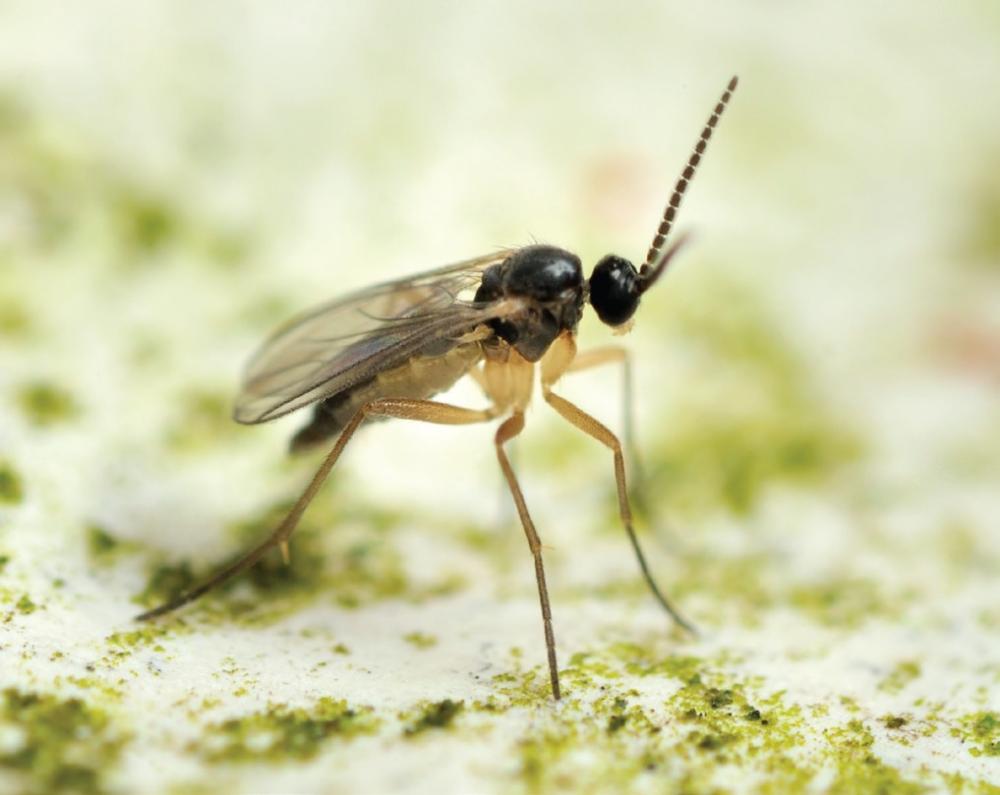
Where are sciarid flies commonly found?
The larvae of some species are commonly found in large numbers in rotting vegetable matter or highly organic soils. Pest managers may encounter them in situations where the occupants of the premises have pot plants or gardens in which the larvae are breeding. The adult flies may annoy the occupants and make them believe that they are being bitten by the flies. Such situations can be difficult to treat.
Why are sciarid flies considered a pest?
Although a few flies may be of benefit to nature, more often than not, flies are a nuisance pest affecting human lifestyles. Diseases such as typhoid, cholera, diarrhoea, amoebic dysentery, giardiasis and worms (pin and tape) are spread mechanically by flies.
What is the biology and lifecycle of a sciarid fly?
Flies undergo complete metamorphosis during their life cycle. The majority of adult females are oviparous and lay their eggs on or near a suitable food source.
Some species e.g. those belonging to the family Sarcophagidae (Flesh flies), are viviparous, depositing live larvae on some type of decomposing matter. Sometimes, they deposit their young on your windscreen when your car and their flight path coincide. The emerging larvae primarily feed upon decomposing vegetable matter or carrion, whilst some are predatory or parasitic. Some larvae e.g. mosquitoes, are aquatic and feed upon food particles in the water.
After reaching the “fully fed” stage, all larvae pupate and shortly thereafter, a full adult emerges.
Chemicals Required to Control Sciarid Flies
Some of the insecticidal formulations you might use include:
-
Fly bait - there are a few options available. They are usually a granular formulation and one very effective product can be applied as a dry granule scattered around, placed in
purpose built bait stations or just in trays, or mixed into a paste and applied to vertical surfaces such as timber poles or to pieces of timber mounted on platforms or suspended in the air.
-
Residual insecticidal application - the use of Synthetic Pyrethroids to fly alighting surfaces e.g. around entry doors, windows and waste bins, will repel and also kill flies. The addition of sugar will help attract house flies to the treated surface. Some insecticides are mixed with water and painted on to an appropriate surface. As well as the active ingredient these products also contain sugar and a sex attractant.
-
Insect growth regulators - these are used to control mosquito and black fly larvae in aquatic environments. They are available in a range of formulations and are very effective when used according to label rates.
-
Drain cleaners - these are not your everyday cleaners but specially formulated products used to clean drains and pipes of organic matter, thus removing potential food sources for vinegar flies. They are available in a number of formulations including a foaming variety which is most effective.
-
Metered aerosol dispensers - These are only effective against flying insects in limited spaces e.g. store room, cleaner’s room and garbage room. Many units have the ability to be set to operate within certain hours e.g. after close of trading until just before opening. For insect control these dispensers use a pyrethrin based insecticidal spray and they can also be used with aerosol cans which dispense an aromatic fragrance.
-
Space treatments - the metered aerosol dispensers are a “mini space treatment” for small spaces. Sometimes, you may need to treat large spaces for flying insects, either a species of fly or stored product moths e.g. Indian meal moth. In this case, you can use an electric or petrol powered misting/fogging device or a high pressure aerosol.
Management Tips for Sciarid Flies
Tackling flies needs a three pronged approach.
Exclusion - Obviously, if you can prevent flying insects from entering a building, your worries are almost over. Some exclusion measures are:
-
Flyscreens: these are placed on doors and windows and are effective if maintained properly.
-
Airlocks: if these are properly designed, located and maintained, they are an effective method of preventing the entry of flying insects, especially if used in conjunction with aerosol dispensers or electronic control units.
-
Air curtains: these systems are not in widespread use due to cost and varying degrees of efficiency. One could write a whole bulletin just on their use. If the systems are not adequate in power or not sited correctly, they do not provide the degree of protection that might be expected.
Restriction - “Restriction” means basically reducing the breeding potential of the pests by eliminating food sources or potential breeding sites. Some of the elements of an effective “Restriction” programme are:
-
Waste disposal: obviously where you have waste disposal, you have, by definition, food wastes, liquids and other items such as packaging material. On large sites, dumpsters and bins should be located on a raised platform which is, in turn, on a sloping concrete pavement, allowing for effective drainage and washing down. Containers should be closed when not in use. All waste bins etc. should be situated a distance from the building itself and not in an area where the prevailing winds will carry odours into interior areas. They should be emptied on a strict schedule and not be allowed to overflow.
-
Breeding site removal: this applies especially to mosquito control where it is an important factor in a control programme. This could involve disposing of old tins, tyres, buckets and similar containers, ensuring that there is no free standing water and changing water in such things as bird baths and wading pools. It is also very important in the control of vinegar flies.
-
External lighting: this is an aspect which is often overlooked by clients and pest managers. It is essential to have exterior lighting for safety and where facilities operate on a 24 hour basis. Mercury vapour lamps, fluorescent tubes and incandescent bulbs are all more attractive to flying insects than high pressure sodium vapour lamps. Specially coloured “insect” bulbs can be used to reduce the attraction factor and external lights should be placed 5-6m away from doorways. Ideally, high pressure sodium vapour lamps should be used exclusively in external areas. Lights should be placed on poles some distance away from the building rather than being attached to the building itself.
Destruction - There are a wide range of chemical and non-chemical control measures with new insecticide formulations being introduced fairly regularly. It would be fair to say that any insecticide will kill flies but that doesn’t mean that you can just pick up any insecticide container from your vehicle, mix up a batch and start spraying. The first aspect to consider of course, is whether or not the product is registered for the particular fly species you’re treating. You need to read the label of any product before you use it as I’m sure you already know. If you don’t have a suitable product already, consult your Globe sales personnel for advice.
PRODUCT SOLUTIONS
-
 Coopex Dust Insecticidal Dusting Powder10g/kg Permethrin
Coopex Dust Insecticidal Dusting Powder10g/kg PermethrinCoopex Dust Insecticidal Dusting Powder is registered for the control of cockroaches, ants, fleas, silverfish and bed bugs in and around domestic and industrial premises, food preparation and storage areas. Also for control of mushroom flies in mushroom housing and bees in wall cavities.
-
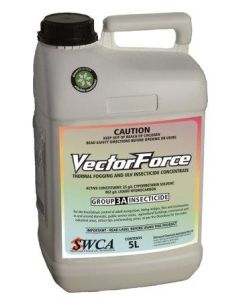 Vectorforce ULV and Thermal Fogging Insecticide 5L25g/L Cypermethrin Solvent
Vectorforce ULV and Thermal Fogging Insecticide 5L25g/L Cypermethrin SolventVectorforce Thermal Fogging and ULV Insecticide Concentrate is formulated for the knockdown control of adult mosquitoes, biting midges, flies and cockroaches.
Out of stock -
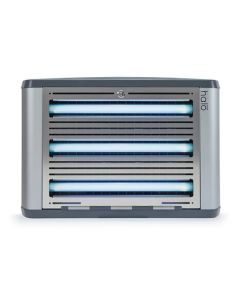 Halo 45 Glueboard Fly TrapProfessional Grade
Halo 45 Glueboard Fly TrapProfessional GradeWith a contemporary, discreet aesthetic and commercial efficacy, the second generation Halo 45 is the most versatile glueboard flykiller available for use across a range of commercial applications.
-
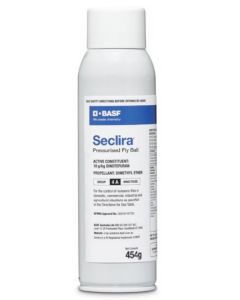 Seclira Pressurised Fly Bait 454g10g/kg Dinotefuran
Seclira Pressurised Fly Bait 454g10g/kg DinotefuranSeclira Pressurised Fly Bait is a new ground breaking, ready-to-use pressurised bait, enabling users to simply and precisely place bait where nuisance flies naturally go.
-
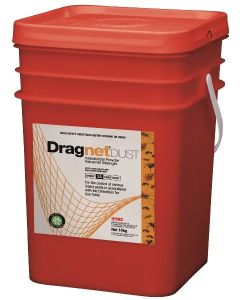 Dragnet Dust Insecticidal Powder2% Permethrin
Dragnet Dust Insecticidal Powder2% PermethrinDragnet Dust Insecticidal Powder is a 2% permethrin, broad-spectrum insecticide dust designed to reach into limited access areas. Dragnet Dust's super-fine formulation gives excellent coverage and spread. It is registered for the control of ants, spiders, fleas, cockroaches, silverfish, bed bugs, wasps, and bird mites in domestic, institutional & industrial premises. Also for the control of hide beetles, mushroom, sciarid flies and Potato moths.
-
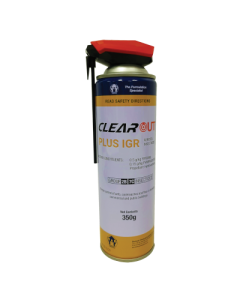 Clear Out Plus IGR Aerosol Insecticide 350g0.5g/kg Fipronil, 0.15g/kg Pyriproxyfen
Clear Out Plus IGR Aerosol Insecticide 350g0.5g/kg Fipronil, 0.15g/kg PyriproxyfenClear Out Plus IGR Aerosol Insecticide is a residual surface crack & crevice or spot treatment for control of ants, cockroaches and flies in domestic, commercial and public buildings.
-
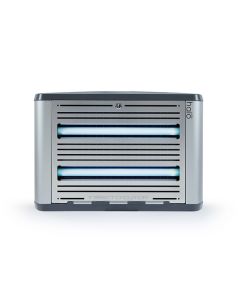 Halo 30 Glueboard Fly TrapProfessional Grade
Halo 30 Glueboard Fly TrapProfessional GradeHalo 30 is a versatile, discreet glueboard fly trap that's silent in operation, making it ideal for sensitive areas such as food preparation, hotel lobbies, restaurant dining and other commercial back of house areas.
-
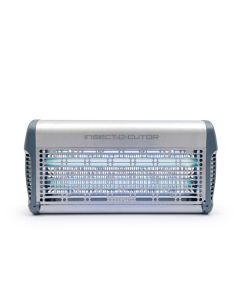 Exocutor 30 Electric Fly Unit
Exocutor 30 Electric Fly UnitThe Exocutor 30 Electric Fly Unit features staggered tube positioning to ensure the maximum amount of UV light is radiated from all areas of the unit, luring flying insects into the highly effective triangular killing grid.
-
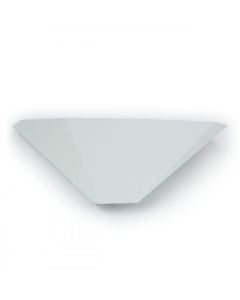 Luralite Cento Glue Board Unit
Luralite Cento Glue Board UnitDeveloped as a highly effective but discreet solution for insect control, the Luralite Cento Glueboard Unit is ideal for use in restaurants, bars, cafes and other front of house applications.
-
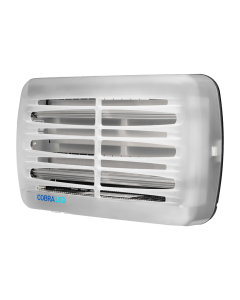 Brandenburg Genus Cobra LED Fly Trap Unit (2x18)
Brandenburg Genus Cobra LED Fly Trap Unit (2x18)A cost-effective and efficient fly trap unit with Translucent TechnologyTM that delivers a 180-degree window of attraction for increased fly catch.
-
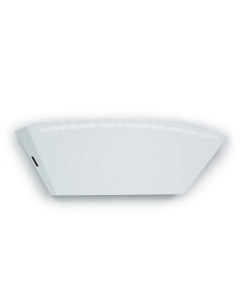 Insect-O-Matic 301 Uplighter Wall Mounted Glue Board Unit
Insect-O-Matic 301 Uplighter Wall Mounted Glue Board UnitCovers an area of up to 40m2 and is effective against all flying insects including flies, fruit flies and moths. Ideal for large lobbies, bars, dining areas and front of house applications. Silent in operation and caught insects are hidden from view.
Out of stock -
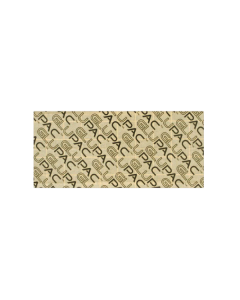 Insect-O-Matic 301 Uplighter Replacement Glue Boards G2/4 (Pk10)Tricozene Z9
Insect-O-Matic 301 Uplighter Replacement Glue Boards G2/4 (Pk10)Tricozene Z9Glupac pheromone impregnated glueboard with UV stabiliser compatible with the Insect-O-Matic 301 Uplighter Wall Mounted Glueboard Unit (IOM301).
-
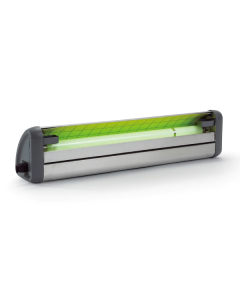 Insect-O-Matic Nectar Glue Board Unit
Insect-O-Matic Nectar Glue Board UnitThe Insect-O-Matic Nectar Glue Board Unit uses UV light, removable trays which can be filled with melon scented liquid attractant, and glue boards to attract fruit flies, fermentation flies, vinegar flies, bar flies and other flying insects to the unit.
-
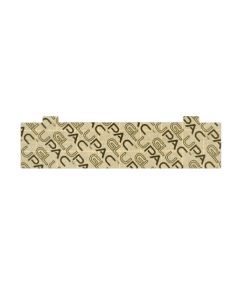 Insect-O-Matic Nectar Replacement Glue Boards (6 pairs)Tricozene Z9
Insect-O-Matic Nectar Replacement Glue Boards (6 pairs)Tricozene Z9Glupac pheromone impregnated glueboard with UV stabiliser compatible with the Insect-O-Matic Nectar Glue Board Unit (IOMINEC).
-
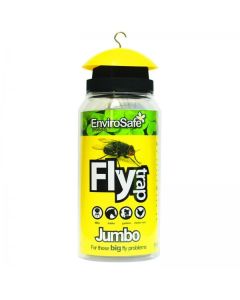 EnviroSafe Jumbo Fly Trap
EnviroSafe Jumbo Fly TrapIdeal for areas with big fly problems. The fly trap comes with 1 x Fly attractant and further EnviroSafe Jumbo Fly Trap Bait (PAT148/1) can be purchased separately.
Out of stock -
 Killmaster Zero Pest Insecticide Strip 65g
Killmaster Zero Pest Insecticide Strip 65gKillmaster Zero Pest Strip is a highly effective, long-lasting solution for managing a wide range of flying and crawling insect pests, including cockroaches, moths, silverfish, ants, and flies. Designed for non-living areas such as storage spaces, store rooms, and industrial bins, this pest strip provides hassle-free protection for up to 4 months.
Out of stock
JOIN OUR NEWSLETTER NOW!
Be the first to hear about the latest specials, products, tips and ideas.

